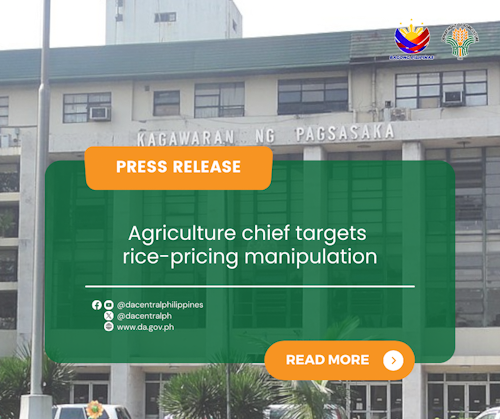In a bold move to address the rampant issue of rice price inflation, Agriculture Secretary Francisco P. Tiu Laurel Jr. has announced plans to strip brand labels from imported rice. This initiative is part of a broader effort to expose and prevent manipulation within the rice industry, which has been exploiting Filipino consumers through artful branding and pricing strategies. Let’s dive into this strategic plan and what it means for the rice market in the Philippines.
Branding can be a powerful tool in any market, but when it comes to essentials like rice, it can be a double-edged sword. According to Secretary Tiu Laurel, some retailers and traders are deliberately confusing consumers by slapping "premium" and "special" labels on imported rice. This tactic justifies inflated prices, making consumers pay more than necessary for what should be affordable staples.
Removing these labels is a significant step toward transparency. By leveling the playing field, consumers can make more informed choices without being swayed by misleading marketing. The aim is clear: protect Filipino consumers from unjustified price hikes while ensuring that the local rice industry remains competitive.
Interestingly, this regulation will not apply to locally-produced rice. The reason? To safeguard Filipino farmers and traders from the same market pressures that make imported rice seem more appealing due to branding. This exemption aims to bolster local agriculture by giving it a fighting chance against imported competition.
Secretary Tiu Laurel emphasizes that importing rice is a privilege, not a right. By tightening the reins on importation permits, the Department of Agriculture (DA) aims to ensure that only compliant traders can operate. This stance not only supports local farmers but also aligns with the broader goal of national food security.
Beyond removing misleading labels, Secretary Tiu Laurel is considering several other measures to stabilize rice prices. One such measure is the possible invocation of a food security emergency under the amended Rice Tariffication Law. This would allow the release of buffer stocks from the National Food Authority (NFA) to help stabilize prices when volatility strikes.
Additionally, Secretary Tiu Laurel is exploring the potential for government corporations, like Food Terminal Inc., to import rice. This move would introduce competition for private importers, potentially driving down prices. The DA’s legal division is also studying whether the Consumer Price Act can be activated to address apparent profiteering, ensuring fair pricing practices are enforced across the board.
The government isn’t acting alone in this endeavor. Secretary Tiu Laurel is actively seeking collaboration with other government departments, such as the Department of Finance and the Department of Trade and Industry. By enlisting the Bureau of Internal Revenue to audit rice traders’ financial records, the government aims to ensure compliance with fair pricing practices. Meanwhile, the Department of Trade and Industry will assist in monitoring rice prices across markets and groceries.
Despite efforts, rice prices have remained high, even after President Ferdinand Marcos Jr. reduced the rice tariff to 15 percent from 35 percent. This stubborn price persistence underscores the complexity of the issue, but with a coordinated and multi-faceted approach, there is hope for more stable and fair pricing for Filipino consumers.
In conclusion, the removal of brand labels on imported rice is just one piece of a larger puzzle aimed at ensuring fair pricing and protecting consumers. By tackling price manipulation head-on, the Philippines is taking significant strides toward a more transparent and equitable rice market. Through continued collaboration and strategic policy implementation, the country is poised to better safeguard its staple food supply against exploitation and volatility.





No comments:
Post a Comment